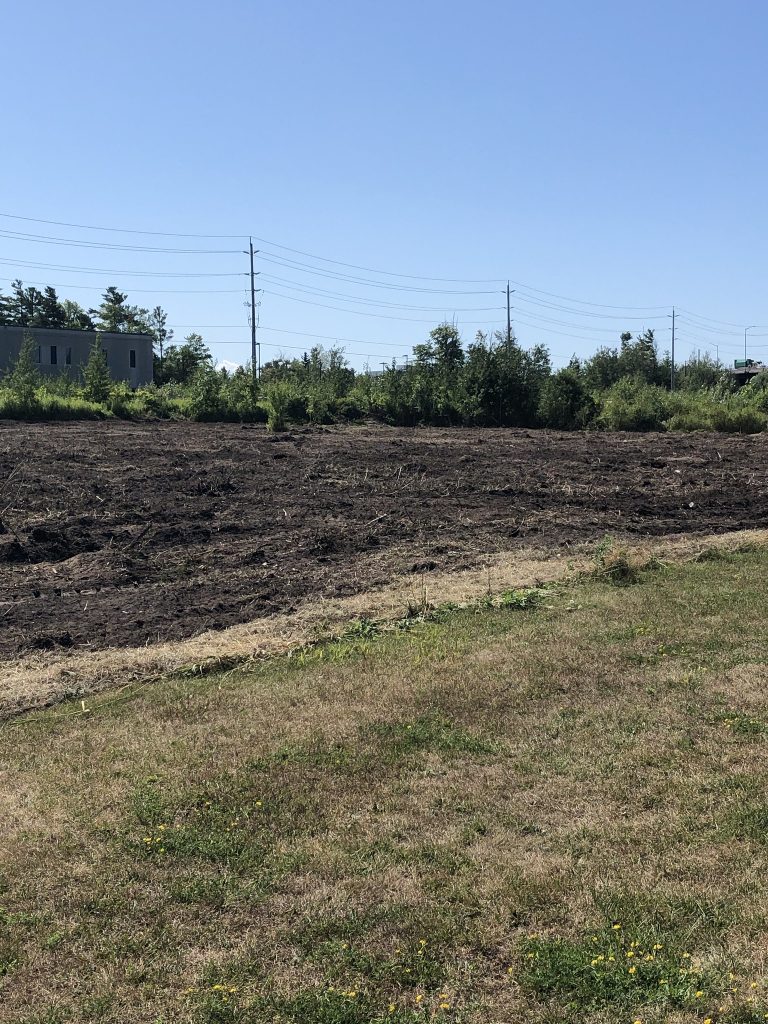August 22, 2019
Unintended Consequences

Over two days last week, a bulldozer-like machine ripped through the land neighbouring the Ottawa Humane Society shelter on West Hunt Club. Staff and volunteers alike stood aghast watching the thing tear down hundreds of small trees and shrubs, leaving the land barren and brown. Everyone’s mind was on the same thing: this is a habitat. The land is likely home to dozens of species, and hundreds of individual animals, all displaced. Well, displaced at best. Likely dozens were killed in the clearing process.
It has happened before. In fact, it happens every few years. Why? Because of a City of Ottawa by-law, specifically by-law number 2009-200: A by-law of the City of Ottawa to protect trees on private property in the urban area. This piece of city legislation prohibits cutting down urban trees with a diameter of greater than ten centimetres without a permit and a fee.
It also happens because the landowner wants to one day develop the site. No doubt he is fearful that if he allows the site to naturalize with trees of greater than 10 centimetres, the application may be costly or denied entirely.
When counsel passed By-law 2009-200, I am absolutely sure that it was with the best of intentions. At the time, there was considerable outcry regarding the loss of urban trees. Counsel certainly had no intention of hurting animals; it was just an unintended consequence. And the landowner is a kind man. He had no intention of hurting animals either. Their suffering was another unintended consequence.
A lot of horrendous things that happen to wild animals are just untended consequences: dumping garbage in the oceans, cutting down old growth forests, moving tankers through whale habitats. Few activities are contrived to hurt animals. But they do. And it’s time that we look at our actions as people, as a community, a country and a world and intentionally help animals, rather than unintentionally causing their suffering and death.
Bruce Roney
President and CEO
